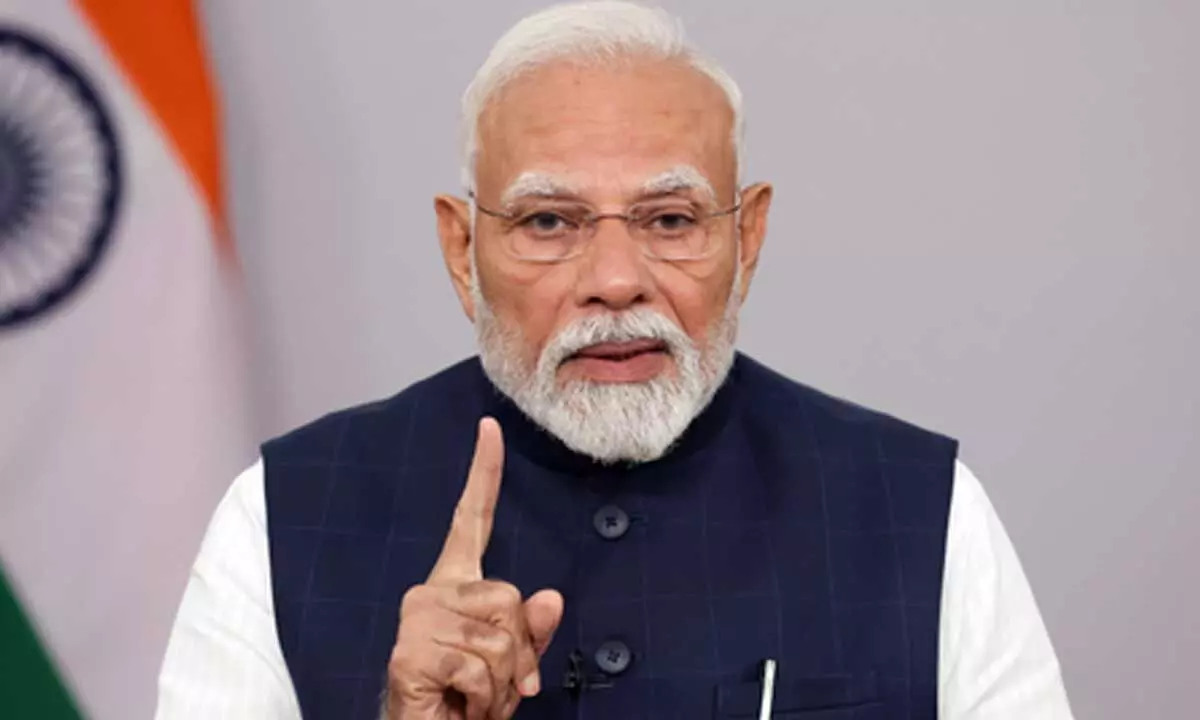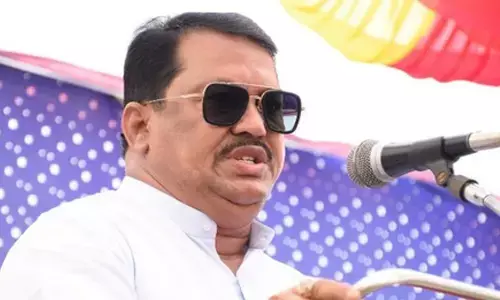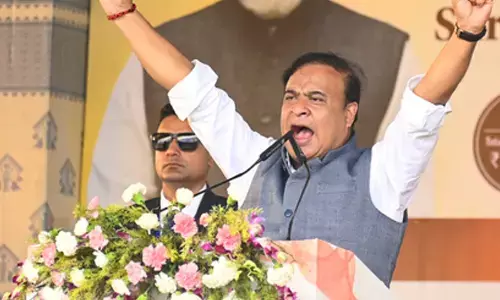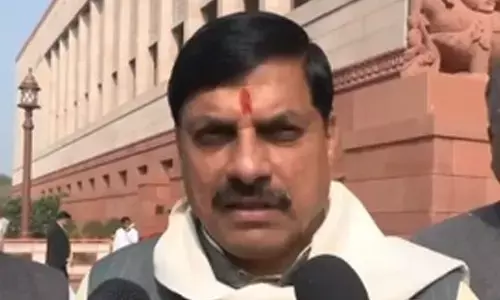PM’s Bihar speech a testament to India’s strength, sobriety

Prime Minister Narendra Modi’s speech in Bihar, in which he pledged to teach the culprits of Pahalgam a lesson “beyond their imagination,” was firm without being reckless.
Prime Minister Narendra Modi’s speech in Bihar, in which he pledged to teach the culprits of Pahalgam a lesson “beyond their imagination,” was firm without being reckless. While brimming with anger and anguish, he ensured that his address could never be construed or misconstrued to damage communal harmony. He didn’t say that Hindus were selectively targeted; he said, “This attack was not just on unarmed tourists; the enemies of the nation have dared to attack the soul of Bharat.” Two days after the horrific terror attack in Jammu and Kashmir’s Pahalgam that claimed the lives of 26 innocent people, he called this an assault on the nation’s soul rather than on a particular community. He thus skilfully avoided inflaming communal tensions. Though it was evident that Hindus were specifically targeted, his refusal to highlight this aspect underscored his commitment to preserving the country’s secular ethos. His words were a reminder that terrorism seeks to divide, and India’s strength lies in its unity.
Modi said in English, “From the soil of Bihar, I am telling the world that India will identify, track, and punish every terrorist and their backers.” It was perhaps for the first time that he said a few sentences in English in a public speech, and that too in Bihar. Evidently, he was addressing the world. His address was a masterful blend of strength, restraint, and unity. It was also a carefully crafted message to the global community, ensuring that India’s stance on terrorism was unequivocal without compromising the delicate fabric of communal harmony within the country.
The speech was also remarkable for the words that were not spoken, the promises not made, and the actions not hinted at. He did not try to placate his supporters by indulging in ghar-mein-ghus-kar-maarenge-type of rhetoric. This is not to say that nothing has been done. Delhi has implemented a series of diplomatic, economic, and security measures against Pakistan. The most important has been the decision to put the 1960 Indus Waters Treaty in abeyance. This critical water-sharing agreement regulates river flows to Pakistan, though its complete implementation may take time. The integrated check post at Attari-Wagah, the main land border crossing, has also been closed.
Diplomatic ties have been downgraded: Pakistan’s military, naval, and air advisors in New Delhi were declared persona non grata and given a week’s time to leave, and India withdrew its equivalent advisors from Islamabad. Both nations’ high commissions will be reduced to a staff of 30 personnel by May 1. India also cancelled SAARC visas for Pakistani nationals and restricted Pakistani citizens’ entry, with existing visas revoked. Security operations have intensified in Kashmir, with the Indian Army, paramilitary forces, and Jammu and Kashmir police launching a manhunt for the attackers, deploying drones and helicopters. A temporary lockdown was imposed in Pahalgam, and the houses of two suspected militants were demolished. General Upendra Dwivedi reviewed security arrangements on-site. Domestically, India held an all-party meeting, passing a resolution condemning the attack and supporting the government’s actions. Protests erupted nationwide, reflecting public outrage. In the broader context, Modi’s speech was a reaffirmation of India’s zero-tolerance policy toward terrorism. It was a clarion call for resilience, unity, and justice—a testament to India’s enduring strength and its unwavering commitment to humanity.














